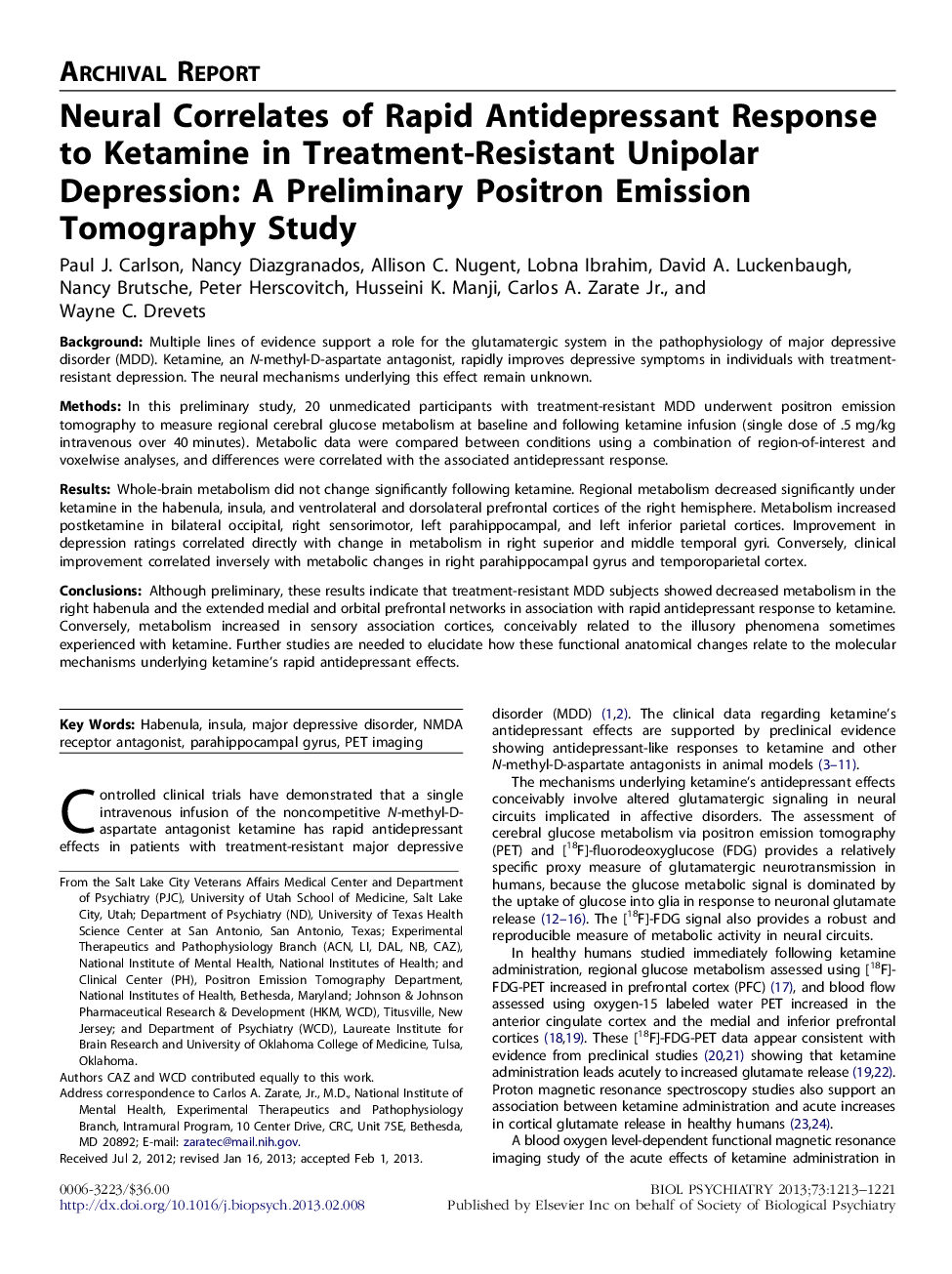| Article ID | Journal | Published Year | Pages | File Type |
|---|---|---|---|---|
| 4177670 | Biological Psychiatry | 2013 | 9 Pages |
BackgroundMultiple lines of evidence support a role for the glutamatergic system in the pathophysiology of major depressive disorder (MDD). Ketamine, an N-methyl-D-aspartate antagonist, rapidly improves depressive symptoms in individuals with treatment-resistant depression. The neural mechanisms underlying this effect remain unknown.MethodsIn this preliminary study, 20 unmedicated participants with treatment-resistant MDD underwent positron emission tomography to measure regional cerebral glucose metabolism at baseline and following ketamine infusion (single dose of .5 mg/kg intravenous over 40 minutes). Metabolic data were compared between conditions using a combination of region-of-interest and voxelwise analyses, and differences were correlated with the associated antidepressant response.ResultsWhole-brain metabolism did not change significantly following ketamine. Regional metabolism decreased significantly under ketamine in the habenula, insula, and ventrolateral and dorsolateral prefrontal cortices of the right hemisphere. Metabolism increased postketamine in bilateral occipital, right sensorimotor, left parahippocampal, and left inferior parietal cortices. Improvement in depression ratings correlated directly with change in metabolism in right superior and middle temporal gyri. Conversely, clinical improvement correlated inversely with metabolic changes in right parahippocampal gyrus and temporoparietal cortex.ConclusionsAlthough preliminary, these results indicate that treatment-resistant MDD subjects showed decreased metabolism in the right habenula and the extended medial and orbital prefrontal networks in association with rapid antidepressant response to ketamine. Conversely, metabolism increased in sensory association cortices, conceivably related to the illusory phenomena sometimes experienced with ketamine. Further studies are needed to elucidate how these functional anatomical changes relate to the molecular mechanisms underlying ketamine’s rapid antidepressant effects.
